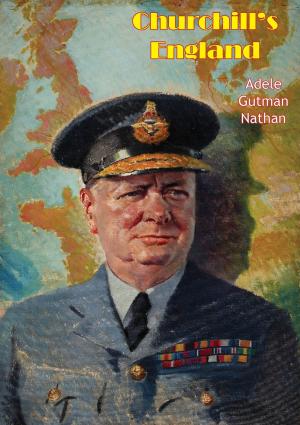The Conduct of War, 1789-1961
A Study of the Impact of the French, Industrial, and Russian Revolutions on War and its Conduct
Nonfiction, History, Germany, European General, Military, United States| Author: | Maj.-Gen J. F. C. Fuller | ISBN: | 9781789121759 |
| Publisher: | Arcole Publishing | Publication: | April 3, 2018 |
| Imprint: | Arcole Publishing | Language: | English |
| Author: | Maj.-Gen J. F. C. Fuller |
| ISBN: | 9781789121759 |
| Publisher: | Arcole Publishing |
| Publication: | April 3, 2018 |
| Imprint: | Arcole Publishing |
| Language: | English |
“A tour de force in the way it embraces and weaves together the political, economic and military factors”—B. H. Liddell Hart
“A work which sums up succinctly the learning of a life-time.”—New Statesman
The Conduct of War, 1789-1961, which was originally published in 1961, is a study of the way in which political and economic changes since the French Revolution have altered both the techniques and the aims of war.
The author begins by studying the limited wars that were possible in the age of absolute rulers, and the destructive impact of revolutionary and democratic government on this state of affairs. Not only did the new armies of the Napoleonic age grow immensely in size and military power: the aims for which the war was fought began to change.
Now it is no longer a question of forcing the enemy government to change its policy in specific ways: the purpose is the destruction of that government and the absolute surrender of its people.
Such a concept of war, the author contends, is a disastrous return to barbarism, and in this book he considers his study in the light of post-war events with Communist countries.
“A tour de force in the way it embraces and weaves together the political, economic and military factors”—B. H. Liddell Hart
“A work which sums up succinctly the learning of a life-time.”—New Statesman
The Conduct of War, 1789-1961, which was originally published in 1961, is a study of the way in which political and economic changes since the French Revolution have altered both the techniques and the aims of war.
The author begins by studying the limited wars that were possible in the age of absolute rulers, and the destructive impact of revolutionary and democratic government on this state of affairs. Not only did the new armies of the Napoleonic age grow immensely in size and military power: the aims for which the war was fought began to change.
Now it is no longer a question of forcing the enemy government to change its policy in specific ways: the purpose is the destruction of that government and the absolute surrender of its people.
Such a concept of war, the author contends, is a disastrous return to barbarism, and in this book he considers his study in the light of post-war events with Communist countries.















